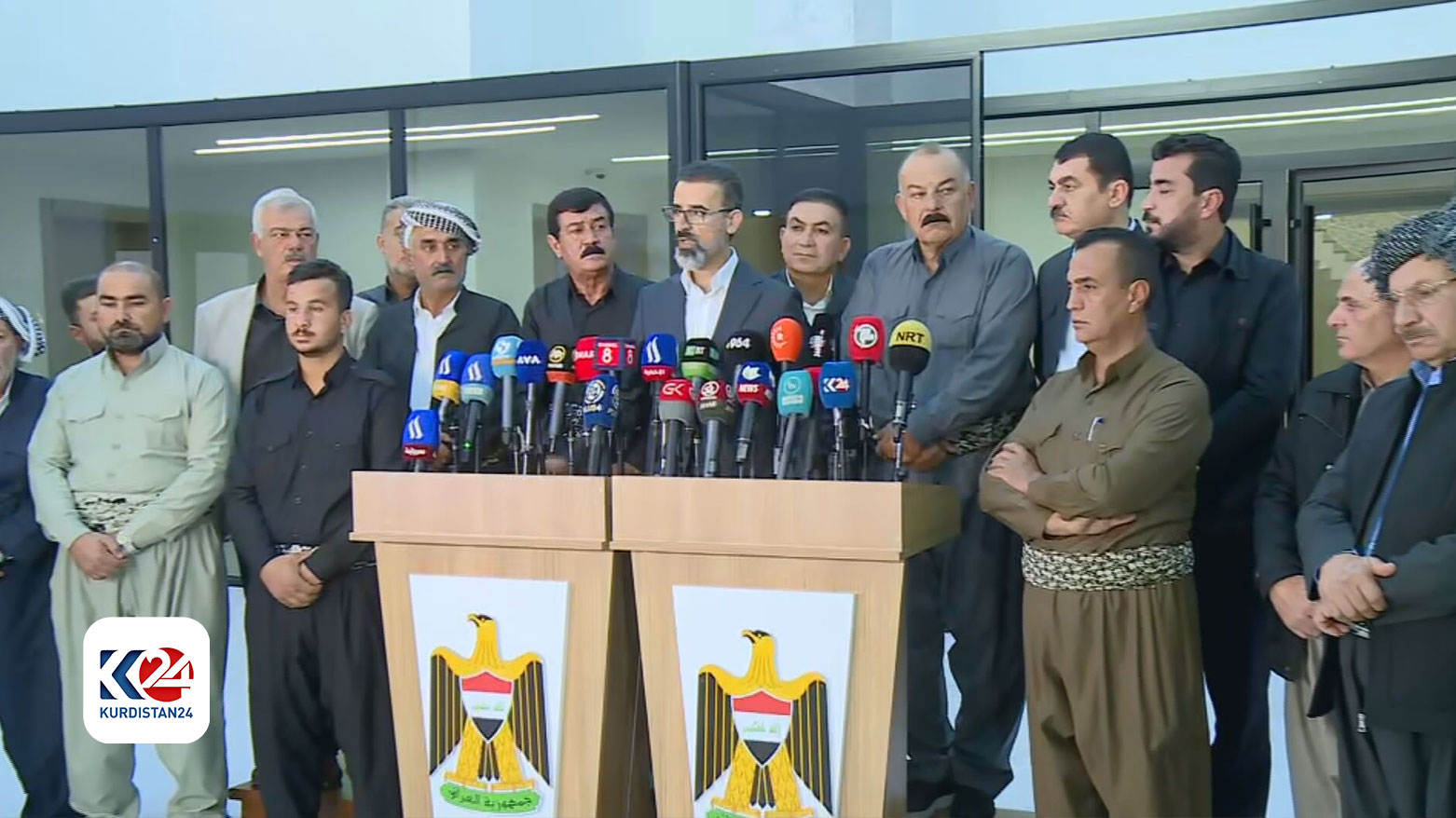Kurdish Farmers, Kirkuk Governor meet to discuss legal rights amid agricultural ban by Iraqi army
"We want to resolve this issue in accordance with the law," Taha emphasized. "It has become clear that the law supports the farmers' position - implementation is what remains to be addressed," he stated.

Nov. 11, 2024
ERBIL (Kurdistan24) - Iraqi Army forces have once again prevented Kurdish farmers from accessing their agricultural lands near Sargaran sub-district and its surrounding villages, prompting an urgent meeting with the Governor of Kirkuk to resolve the ongoing dispute.
Mohammed Amin, the representative of Sargaran farmers, told Kurdistan24 that the 8th Division of Kirkuk Operations Command is blocking farmers from their lands, citing disputed ownership claims.
The farmers are currently meeting with Kirkuk Governor Rebwar Taha to address the situation.
"We are currently at the Kirkuk Governorate office meeting with Governor Rebwar Taha to find a solution to this issue," Amin stated.
He also confirmed that they will be traveling to Baghdad on Tuesday, Nov. 12, 2024, to attend a Federal Court session regarding their case.
Following the meeting and during a press conference, Kirkuk’s Governor Rebwar Taha revealed that he had met with representatives from four villages in the Sargaran area, along with the commander of the 8th Division.
"We want to resolve this issue in accordance with the law," Taha emphasized. "It has become clear that the law supports the farmers' position - implementation is what remains to be addressed," he stated.
The governor announced plans for a follow-up meeting in the coming days, which will include the Operations Commander, the 8th Division Commander, Kirkuk's Director of Agriculture, Sargaran's Director of Agriculture, and representatives from both sides.
"As the head of Kirkuk's Agricultural Committee, the final decision will rest with me," Taha added.
The dispute centers around the farmers' legal challenge to overturn Baathist-era decrees 949 and 824, which affected land ownership in the region.
The Federal Court previously postponed hearings on the case from July 21 to Sep. 15, and then again to Nov. 13, 2024.
The land ownership dispute in Kirkuk's agricultural areas stems from the former Baathist regime's Arabization policies, which displaced Kurdish farmers and redistributed their lands.
Despite the fall of the Baathist regime in 2003, many of these historical land ownership issues remain unresolved, affecting agricultural development and interethnic relations in the region.
The current situation reflects the broader challenges of addressing historical injustices while maintaining stability in Iraq's disputed territories.